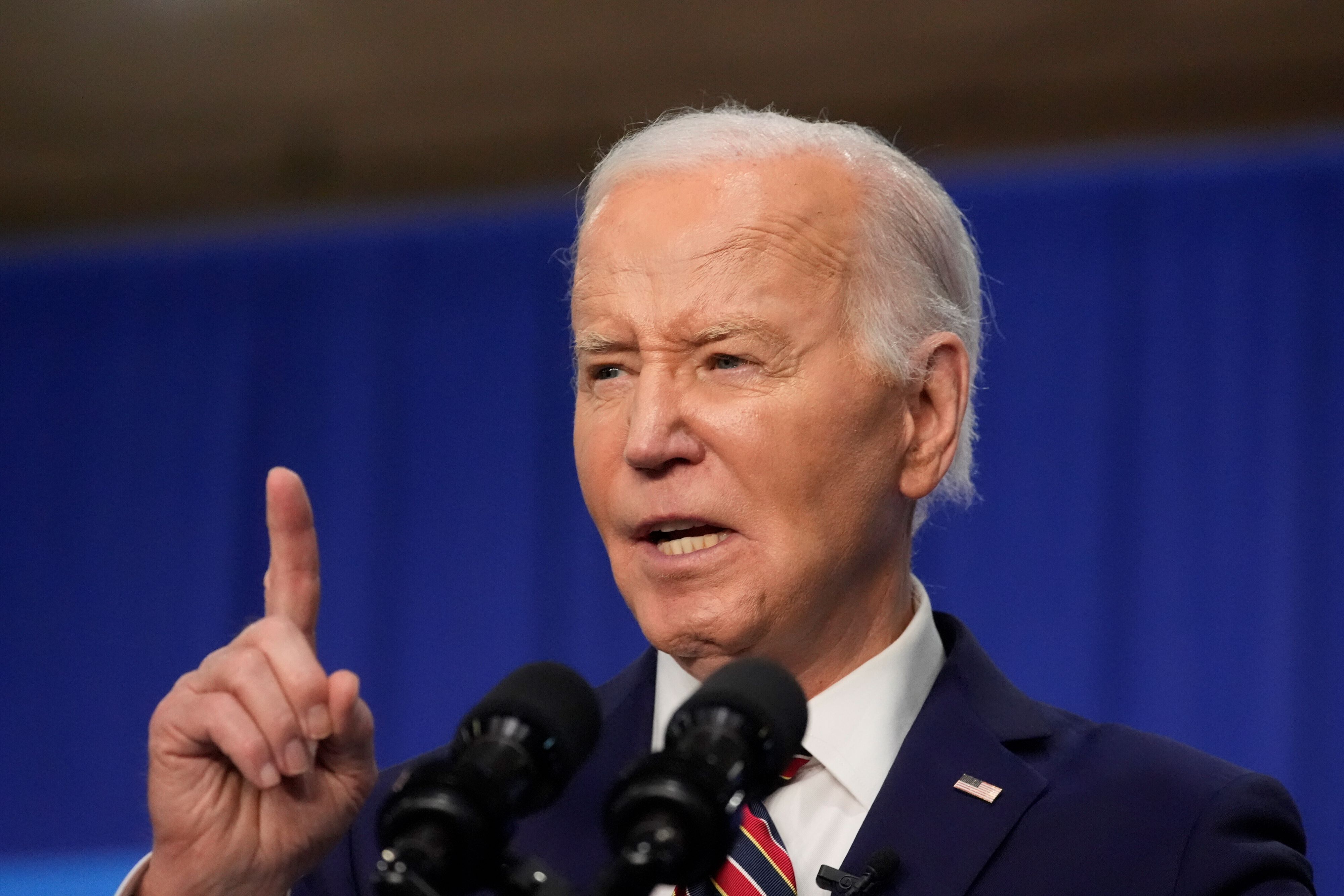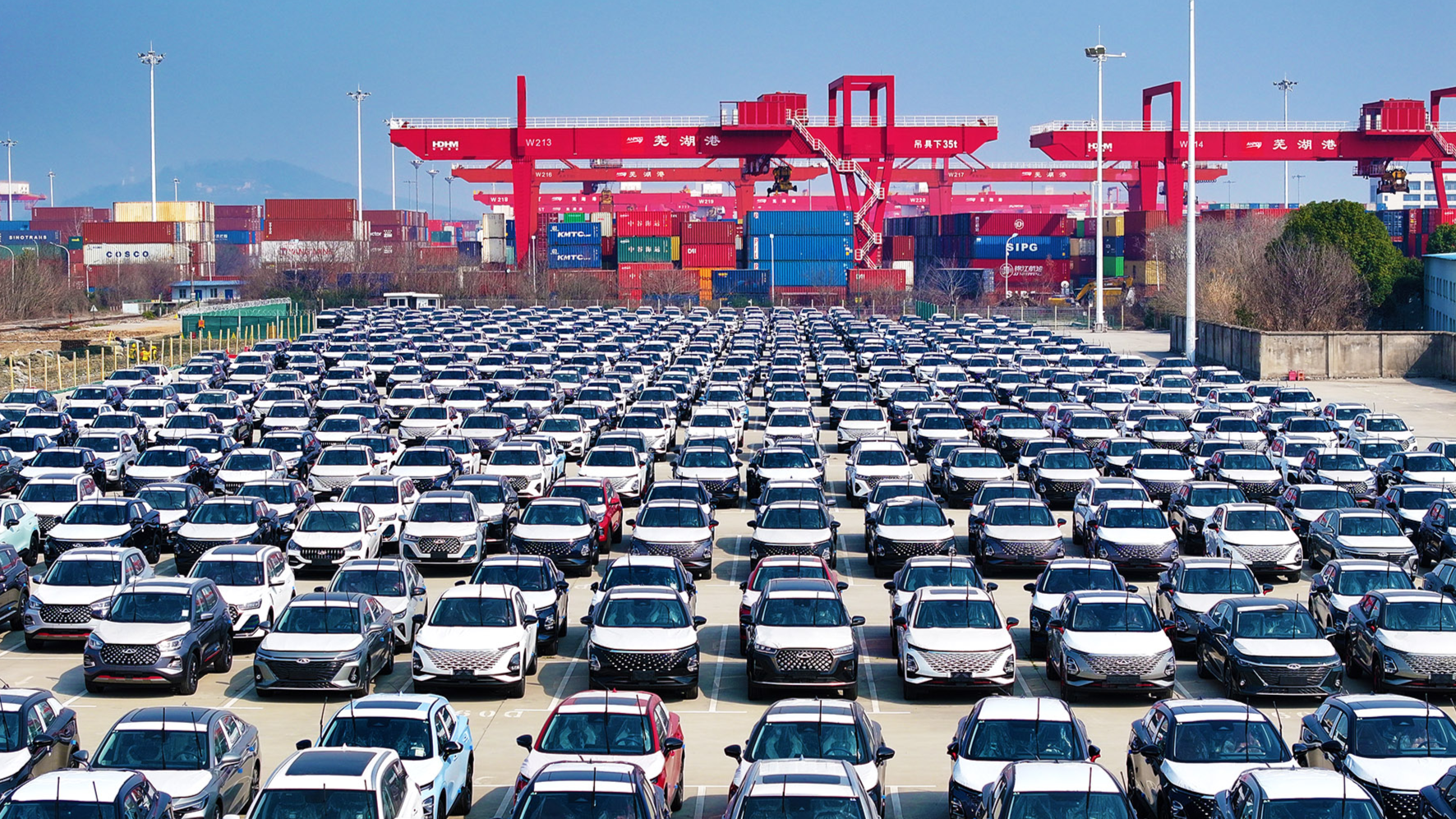
As a senator of the United States from 1973 to 2009, Joe Biden was considered a reliable vote on free trade.
From the 1990s to the 2000s, Biden voted in favor of the Uruguay Round, the Canadian-US free trade agreement and the North American Free Trade Agreement. He also supported extending the most-favored-nation status to China.
Last week, as president, Biden did an about-face on that reputation as a supporter of free trade along with what he had said about tariffs as vice-president, presidential candidate and senator. He announced he was going to raise tariffs on electric vehicles from China to roughly 100 percent, as well as tariffs on advanced batteries, solar cells, steel, aluminum and medical equipment.
In an interview in February 2020 with the Washington-based Center for Strategic and International Studies, on reducing the US trade deficit, Biden said he believed the US should be a rule-setter and work through multilateral coalitions to pressure "bad actors".
READ MORE: US should abandon ‘sour grapes’ mentality when China's green products excel
To make this point clear, he said, "The answer to this threat is more openness, not less: More friendships, more cooperation, more alliances, more democracy."
Six months later, Biden, a Democratic candidate for president, said if elected he would remove the $200 billion in tariffs that then-president Donald Trump had put on China.
And it is baffling to me that he keeps doing it when he could wake up tomorrow morning and say, 'That's it, tariffs were done with him (Trump), and it would be a better economic climate for everybody, not to extend them.'
Anthony Moretti, Head of the Communication and Organizational Leadership Department at Robert Morris University
"President Trump may think he's being tough on China. All that he's delivered as a consequence of that is American farmers, manufacturers and consumers losing and paying more," he said.
Candidate Biden described Trump's avalanche of unilateral tariffs on imports of Chinese goods as self-defeating because of their high costs for US citizens.
READ MORE: Tariff stunt undermines US economic security rather than enhancing it
In addition to the new tariffs, the current Biden administration announced it would be extending Trump-era tariffs on $300 billion of Chinese imports, including consumer electronics, furniture, clothing and shoes, among other goods.
The tariffs cover $18 billion of imports and are to be phased in over the next three years, with those that take effect this year covering electric vehicles, solar cells, syringes, needles, steel and aluminum, and more.
"He knows that. He has to know this is a bad policy," Anthony Moretti, head of the Communication and Organizational Leadership Department at Robert Morris University, told China Daily.
"And it is baffling to me that he keeps doing it when he could wake up tomorrow morning and say, 'That's it, tariffs were done with him (Trump), and it would be a better economic climate for everybody, not to extend them.'"
ALSO READ: New tariffs will only hurt US, experts warn
One of the reasons that Biden is able to sustain the tariffs is that the stock market in the US is doing well, but most US citizens are paying higher prices for food, gasoline and other goods, Moretti added.
"Not all of that is a result of tariffs. But there's no question that as you look at the data, there have been job losses because of the tariffs," he said.

'Who can be tougher'
Frank Maisano, a founding partner at Bracewell Policy Resolution Group, a Washington lobbying and legal services firm, told the Pittsburgh Post-Gazette, "This is a battle of who can be tougher on China right now.
"That plays to the constituency that both of them are searching for, and frankly that Joe Biden really needs — the unions. Not the union bosses, but the union rank-and-file."
On Tuesday, European Commission President Ursula von der Leyen said in a political debate that rather than imposing broad tariffs, the EU has a much more tailored approach
Myron Brilliant, a former executive vice-president at the US Chamber of Commerce, told The Wall Street Journal, "The fact is that no one wants to look weak on China."
READ MORE: Biden’s solar cell tax, EV levies slammed
He added, "I don't think Biden should try to out-Trump Trump when it comes to trade and tariffs."
The US is trying to woo European allies to take similar protectionist measures, but European officials worry that the US tariffs would violate global rules set by the World Trade Organization.
ALSO READ: New US tariffs on China undermine US green future
On Tuesday, European Commission President Ursula von der Leyen said in a political debate that rather than imposing broad tariffs, "we have a different approach, a much more tailored approach".
"We want competition, we want to trade together, but we want it to be fair and by the rules," she told the Financial Times.
Contact the writers at aiheping@chinadailyusa.com.


